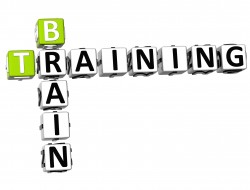Is biofeedback certification required or important to provide Neurofeedback?
Neurofeedback is a subset of biofeedback. Currently, specific certification for licensed professionals aren’t required. The APA (American Psychological Association) includes biofeedback as part of the scope of practice under their guidelines. Physicians have provided forms of biofeedback for years. They can certainly provide it under the scope of their medical practice. Other mental health professionals, such as LCSWs, MFTs in every state we are aware of have had no problem including biofeedback under their scope of practice. But can certification be important or useful?
Neurofeedback Certification
Certification programs for neurofeedback and biofeedback have been created by the Biofeedback Certification Institute of America (BCIA), a peer-reviewed organization that has set standards for this field.
 They provide two kinds of certification. One is BCIA for general biofeedback – EMG (muscle activity), GSR (galvanic skin response), breathing rate, and other peripheral measures. Also, a separate BCIA certification exists for EEG Biofeedback (Neurofeedback). There have been several other efforts within the industry to create an alternative body for biofeedback certification. None have overly successful.
They provide two kinds of certification. One is BCIA for general biofeedback – EMG (muscle activity), GSR (galvanic skin response), breathing rate, and other peripheral measures. Also, a separate BCIA certification exists for EEG Biofeedback (Neurofeedback). There have been several other efforts within the industry to create an alternative body for biofeedback certification. None have overly successful.
It’s possible that governing bodies or insurance companies could require EEG BCIA certification as a requirement in the future. As the field grows, there could be more pressure for certification. Most locations currently accept that if the clinician is a licensed healthcare professional, their licensure is sufficient for them to include neurofeedback into their practice. They may or may not be competent.
Getting EEG BCIA-certified suggests increased effort on a professional’s part to gain appropriate training in this modality. Some psychologists and other professionals say this is useful. Others don’t think it’s important, as long as they can show they’ve taken appropriate courses to be trained.
There is no long-term downside to getting certified, though there are many skilled and qualified practitioners who do not have certification. There are common complaints about the EEG Biofeedback certification exam. It is considered hard and more academic than practice-oriented. Many of the exam questions seem unrelated to the actual practice of neurofeedback, though they may relate to EEG matters.
Secondly, the exam doesn’t provide any measure of competency. Others point out these complaints are similar to other field’s complaints about their certifications. Many tend to be more academic than practical. BCIA is attempting to make changes to its exam, albeit slowly.
Lastly, there are so many new technologies, software, and equipment models now to choose from, and learning one system doesn’t mean there is carryover to another. It would be difficult to write a practical exam with so many different variations on ways to practice neurofeedback.

